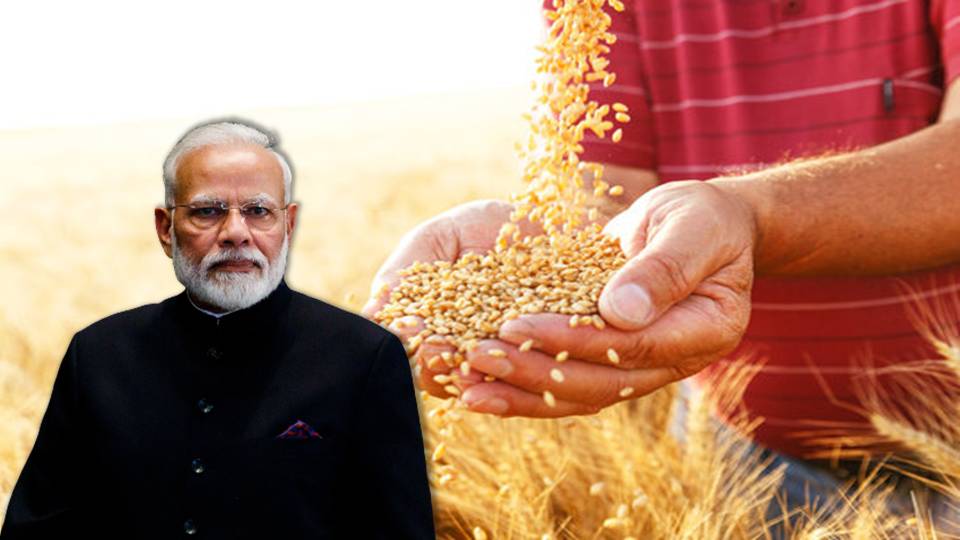Wheat forms one of the top staple foods around the world. The main intake of any diet is wheat, but due to varying climatic conditions, there are very few countries that grow and export the grain. Ukraine and Russia combine to form around 33% of the world’s wheat exports. But the war between them has not only affected farming but has also disrupted the supply of already produced wheat. Moreover, both countries combined produce approximately one-third of the world’s ammonia and potassium exports, essential ingredients in fertilizers. The disruption in the supply of these fertilizer ingredients will further create a global food crisis.
Bread War
Recently, Italian Foreign Minister, Luigi Di Maio, highlighting the grave ‘food emergency’ in the world due to the war, has said “the global bread war is already going on and we must stop it”.
He also highlighted the African food crisis and the risk of political instability possessing these conditions.
It is pertinent to note that owing to the food shortage in Africa, recently the top African Union official met Russian President Vladimir Putin to discuss the war-induced food crisis. A disruption in grain exports has sparked food insecurity in many African countries, leaving 1.3 billion Africans hungry.
Last month, the United Nations also announced that the Covid pandemic, climate change, and the war in Ukraine have almost doubled the number of food-insecure people in the world.
Earlier in May, Director-General Qu Dongyu was invited by the German presidency of the G7 to discuss the consequences of the conflict in Eastern Europe on global food security. The head of the Food and Agriculture Organization of the United Nations (FAO) had requested G7 nations “to help anticipate future food shortages, as the war in Ukraine squeezes supplies, pushes prices to record highs and threatens already vulnerable nations across Africa and Asia”.
Leave thinking about the support to fight the food crisis, G7 countries are extending the war with an unending supply of weapons to Ukraine. They are not only provoking Russia and fighting a proxy war but a bread war has been initiated in the world due to this Russia-Ukraine crisis.
Read More: India must take on those countries who have rejected our wheat donations
India’s ability to feed the world
India is the second-largest wheat producer in the world. But, it is also the second-largest populated country in the World. The world’s largest food security program in India requires over 25 million tonnes of wheat each year.
The expected harvest of wheat in the ended Rabi season (April to March) is at a record 111.32 million tonnes. By maintaining its buffer stock and distribution under welfare schemes, India has the potential to support war-induced global food security.
Moreover, owing to the price rise in the global food market, Indian private sectors are rapidly procuring wheat from local farmers for more than the minimum support price. Reports suggest government procurement of wheat in 2022-23 is down to 53% due to the private trade of the grain.
Read More: Pakistan drops the Kashmir tone, as it begs India for wheat
The artificial creation of the wheat crisis
Increasing demand in the grain market had provided a great opportunity for India to establish a new global food supply chain mechanism and the country was initially working on these things.
But the reckless and unregulated supply of wheat was used by international middleman countries to hoard the grain and to create an artificial demand for wheat, ultimately skyrocketing the prices. Noticing this hoarding and artificial creation of demand, India also banned the export of wheat to check on such unwarranted trade practices.
Despite the export ban, India continued to supply to its traditional buyers. The government also proposed to export the wheat on a government-to-government basis to check on the intermediaries in the market.
Supply chain disruption in both wheat, as well as fertilizer availability in the international market will harden the food availability while creating a global hunger crisis. India’s sufficient buffer stock and production provide the country with the capacity to export wheat to a certain extent and provide great relief from hunger to the world. With the proper supply chain mechanism and government-to-government agreement, India can provide great food relief to poor countries.
